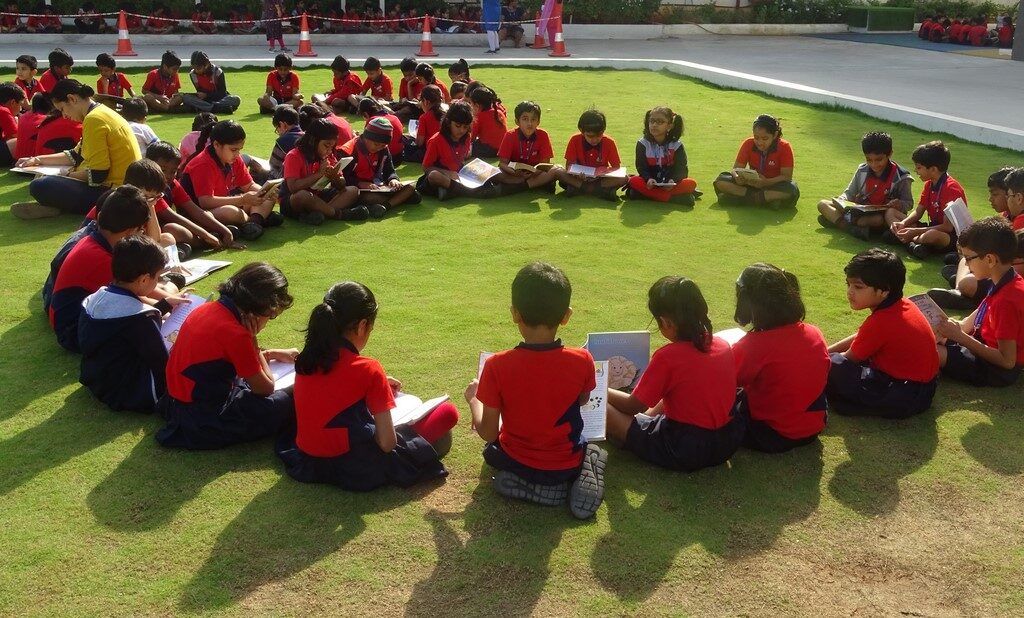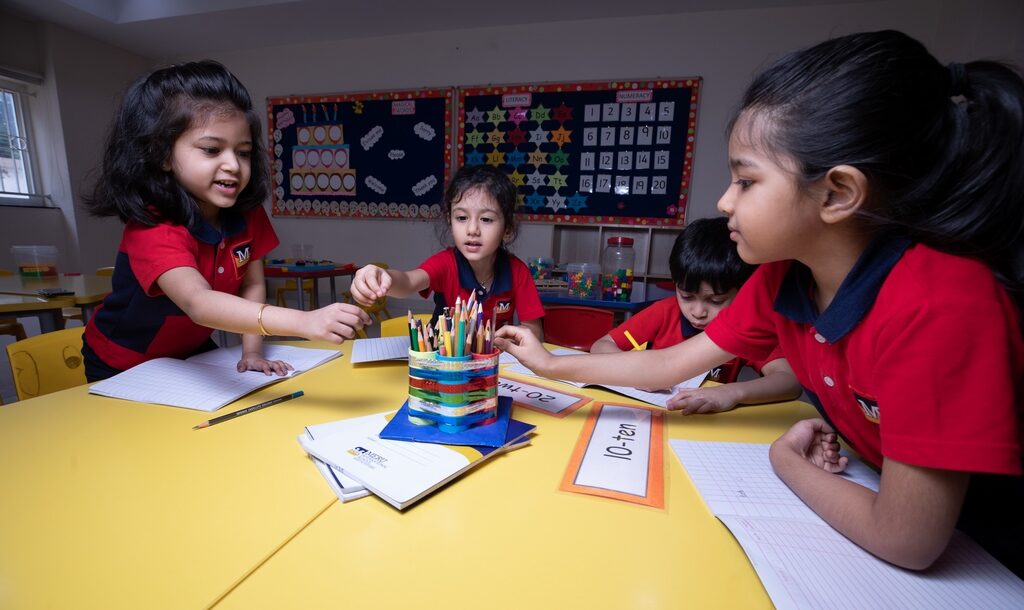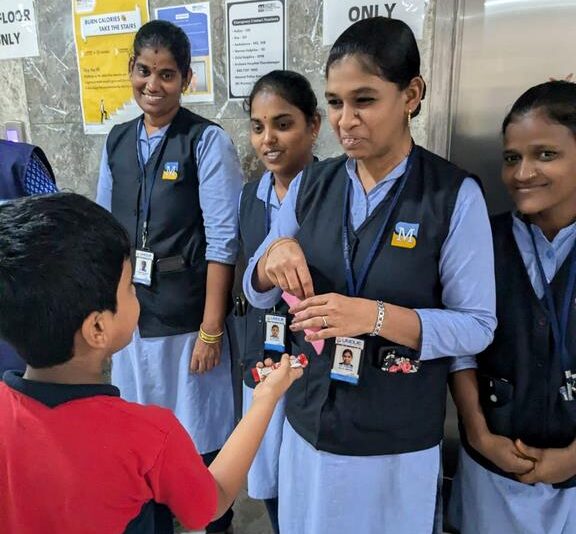Parenting a child can be challenging but also rewarding. Here are seven things you can do to foster a positive relationship and guide them effectively:
Communicate Openly & Actively Listen
- Encourage open conversations without judgment.
- Listen to their thoughts and feelings without interrupting. Make it a habit to express If we can show love daily—whether through small gestures like a warm hug or words of encouragement and setting aside time for one-on-one conversations with your child, ensuring they feel safe sharing their thoughts and concerns.
Set Clear Boundaries & Expectations
- Establish rules with flexibility, considering their growing independence.
- Explain the reasons behind boundaries rather than imposing them strictly.
- Instead of saying, “Behave well,” say, “Speak politely to others and wait for your turn to talk.” Using the statements like, “What do you think is a good rule for keeping our room tidy?"
Support Their Interests & Encourage Independence
- Allow them to explore their passions, hobbies, and career interests. Pay close attention to what excites and engages your child. Encourage exploration by showing interest in their hobbies and passions. Example: If your child loves drawing, ask about their artwork, provide sketchbooks, and introduce them to different art styles.
- Let children make age-appropriate choices to build independence and confidence in their abilities. Example: Instead of choosing their clothes, ask, "Would you like to wear the blue shirt or the red one today?"
- Let them decide how to decorate their study space or which book to read before bed.
Be a
Role Model
- Demonstrate the behavior and values you want them to adopt.
- Handle stress, conflict, and responsibilities in a way they can learn from.
- Children learn more from actions than words. Demonstrate the respect, patience, and responsibility you want them to adopt. Example: If you expect them to use kind words, ensure that you also speak politely to them and others.
Monitor Without Controlling
- Stay aware of their activities, friendships, and online presence.
- Show trust while keeping a watchful but respectful eye on their choices.
- Give children time to engage in their interests freely, without feeling pressured to perform or succeed.
- Avoid pushing them into activities you prefer or expecting them to excel immediately. Example: If they enjoy music, let them play casually rather than forcing structured lessons right away.
Help Them Navigate Emotional & Physical Changes
- Talk about mental health, self-esteem, and body image positively.
- Be supportive through hormonal changes, mood swings, and stress. Acknowledge that the changes they're going through are normal. Let them know that it's okay to feel uncomfortable, frustrated, or even confused about what’s happening.
- For example, saying, “It’s normal to feel a little awkward during puberty. Everyone goes through this phase,” can provide reassurance.
Create a Safe & Supportive Environment
- Make home a place where they feel secure and understood.
- Offer unconditional love, even when addressing mistakes or conflicts.
- Introduce self-care practices: Encourage activities like physical exercise, meditation, or mindfulness to help them manage stress or anxiety.
- Help them maintain friendships and find support groups or peers who are going through similar changes. Knowing others are experiencing the same thing can help normalize their feelings.
- Encourage them to be open and supportive toward others, which can promote empathy and understanding.
The Meru Way of Fostering a Positive Relationship with students
Communicate Openly & Actively Listen
At Meru, Best CBSE Schools in Chanda Nagar | International School Chanda Nagar we emphasize open communication through Circle Time and well-being counselor sessions, where students are encouraged to share their thoughts in a safe and judgment-free environment. Parents can adopt a similar approach by setting aside dedicated one-on-one time with their child, fostering a culture of trust and active listening.


Set Clear Boundaries & Expectations
Meru follows a mindful discipline approach, where students understand rules through positive reinforcement rather than strict imposition. Parents can mirror this by explaining the rationale behind rules rather than simply enforcing them. Our mindfulness initiatives help children learn self-regulation, making it easier for them to understand and follow boundaries.


Be a Role Model
Our educators at Meru lead by example, embodying values of respect, patience, and responsibility. Parents can do the same by demonstrating the behavior they wish to see in their children. For instance, if kindness is a priority, speaking politely to teachers, staff, and other parents during school interactions reinforces this lesson.
Support Their Interests & Encourage Independence
Through M-CLAP program (entrepreneurship, financial literacy, career readiness, and sustainability) Introducing MCLAP in Meru International School Tellapur, we encourage students to explore their interests and take ownership of their learning. Parents can support this by actively engaging in their child’s hobbies and allowing them to make age-appropriate decisions, such as choosing their extracurricular activities.
Help Them Navigate Emotional & Physical Changes
The school’s counseling team and well-being programs Meru Students Navigating Lifes Challenges with Confidence! provide guidance on mental health, self-esteem, and adolescence. Parents can complement this by normalizing conversations around puberty and emotional changes. Our students engage in weekly sessions on stress management, conflict resolution, and anti-bullying, which can serve as conversation starters for similar discussions at home.
The Buddy day at Meru Discover Parent Testimonials Highlighting Meru School’s Excellence helps children interact with each other and share their ideas and experiences.

Create a Safe & Supportive Environment
Meru strives to be a second home for students, ensuring they feel valued, safe, and supported. Parents can reinforce this by making home a space where children feel comfortable expressing their emotions. Encouraging self-care practices like yoga, meditation, or outdoor activities, as we do at school, can further help children manage stress and anxiety effectively.
By aligning parenting strategies with Meru’s core values, we can create a nurturing environment both at school and at home, helping children grow into confident, independent, and emotionally resilient individuals.

